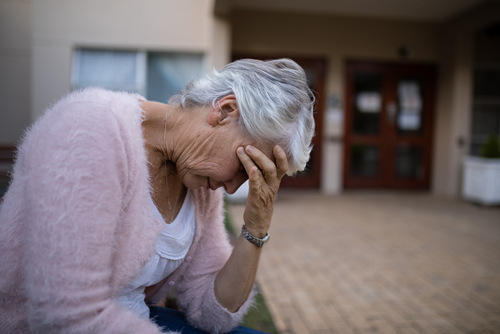Physical, sexual, and emotional abuse in nursing homes
 According to the National Council on Aging, about 1 in 10 nursing home residents over the age of 60 have experienced some form of abuse in nursing homes. It is essential to be aware of the various types of abuse older adults experience in nursing homes to protect vulnerable residents better.
According to the National Council on Aging, about 1 in 10 nursing home residents over the age of 60 have experienced some form of abuse in nursing homes. It is essential to be aware of the various types of abuse older adults experience in nursing homes to protect vulnerable residents better.
Of the seven basic types of elder abuse that, unfortunately, are common in American nursing homes, physical, sexual, and emotional or psychological abuse, is the most prevalent. Neglect, abandonment, financial exploitation, and self-neglect are the other four types.
Thousands of elderly Americans are psychologically and physically abused by their caretakers each year, but knowing the signs of these abuses can prevent it and protect your loved ones.
Physical abuse is one common form of mistreatment that the elderly experience at the hands of their trusted caretakers. They might get physically injured either by intentional or unintentional methods; sometimes, a caretaker is negligent in the way they interact with their patients, sometimes leaving them with bruises or broken bones. Other times, a caretaker will intentionally cause harm to the older adult by kicking, punching, or pushing them. Signs of physical abuse can be easy to spot if the resident has cuts, bruises, broken bones, etc.
Sexual abuse of the elderly, as with anyone else, occurs when they are forced or coerced into a sexual interaction without giving consent. Telltale signs of sexual abuse are bruising and bleeding around the inner thighs and genital area, social withdrawal, bloody undergarments, and problems walking or sitting. It should be noted that people with dementia or Alzheimer’s may not be able to communicate that they have been abused.
Psychological or emotional abuse might manifest as name-calling, humiliation, blocking access to resources, forcing isolation, or making threats. An older adult who is being abused in this way might avoid eye contact, appear withdrawn or scared, exhibit mood swings, or isolate themselves from their friends and family.
Contact a New York nursing home abuse lawyer
If a nursing home caretaker has abused your loved one, turn to a New York nursing home abuse lawyer for assistance in putting an end to this mistreatment. We believe that when you put your elderly loved one in a residential facility, they should receive the highest quality of care. When caretakers breach this boundary of trust, care, and respect, the employee and the facility should face the consequences. Call our office at Hach & Rose, LLP to discuss your options today.
Comments
Post a Comment